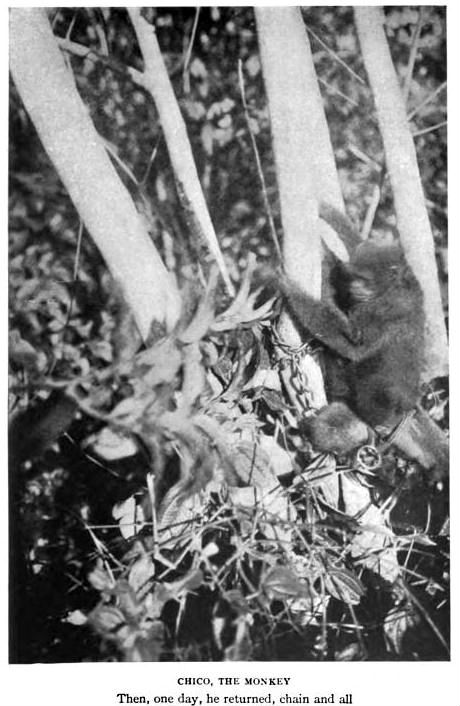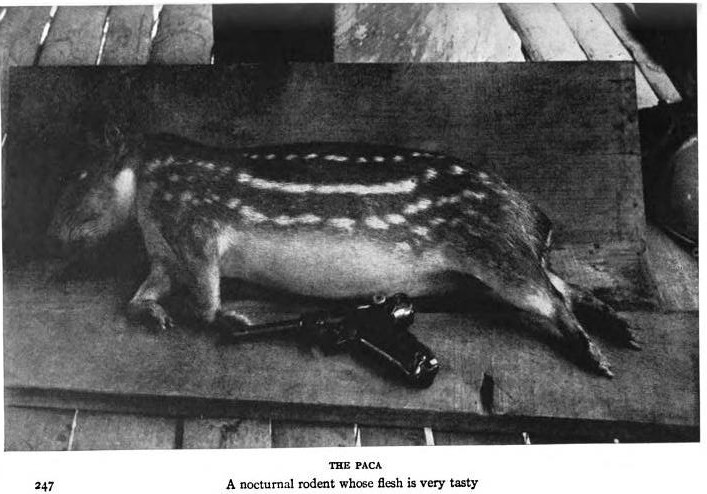His condition eventually got the best of him. Into his ninth day of wandering, Lange collapsed in a thicket. Having no idea how long he lay in such a state, he woke to find himself in a hammock surrounded by forty or fifty men, women and children. Every man wore through his nose two feathers. Oval wooden disks pierced the women's lower lips, and thick scarlet and black lines encircled their eyes. These folks offered him chicken soup and foul-smelling nostrums, which he ate and drank warily. Between meals he dozed, and the days passed.
Once Lange regained his strength the people took him to their chief, a man who wore a floor-length feather garment and whose smile revealed two rows of teeth filed to points. The chief explained through hand gestures how members of his tribe, the Mangeromas, had found the explorer asleep in the jungle. Surprised at this discovery, they carried him to their village. The Mangeromas occupied an unmapped region of the jungle, one isolated from Brazilians and the people who lived by the river. Limited contact conditioned them to treat strangers with suspicion. Yet the chief proved a most welcoming host by making Lange an honorary subject.
With tribal membership came its privileges. The chief charged two young girls with the task of ministering to Lange's every need, and the tribesmen invited him to tag along on hunting trips and other amusements. They showed him how to concoct the poison in which they dipped their arrows and tutored him in the tribal tongue. Evenings saw lavish dinners, of which the Mangeromas, true gourmands, eagerly partook. Happy to leave behind his invalid's diet of stinky broth, Lange joined these nightly feasts, inhaling turtle eggs by the dozen, and devouring countless cutlets of marsh deer, plates of fried pirarcu (a fish of monstrous size), and roast parrot with bananas. Grilled wild boar delighted him, and broiled monkey he munched with gusto. Only one dish did he refuse, one which the Mangeromas considered a delicacy: stewed Peruvian.
Not that the particulars of how to trap, cook and eat a man failed to interest Lange. He made inquiries into their cannibalistic culinary practices, which he understood the Mangeromas kept a closely held secret. He nonetheless gained their trust, and they allowed him to glimpse their man-traps, which they constructed in any one of several ways.
During such prandial preparations Lange made himself scarce. "How long would it be," he noted in his memoirs, "before they would forget themselves and place my own extremities in the same pots and pans." But he saw nothing but kindness from them, and they eventually allowed him to proceed on his way intact. A few months later he returned to his home in New York, where he would aver that his native hosts "convinced [him] that, even at the late period of the world's history, our earth has not been reduced to a dead level of drab and commonplace existence." Indeed, the bustle of the Big Apple left Lange hankering for the pace of life enjoyed by the Mangeromas -- as well as for the strange fruits that sustained them.


